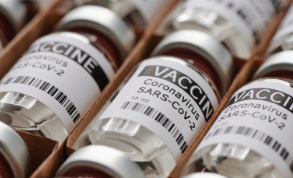Covid-19 reader: 19 November
Looking for the evidence on mask wearing and hand washing
The British Medical Journal, editorial
 While the coronavirus pandemic has seen wide-ranging and robust trials for vaccines and drug treatments, an editorial in The BMJ decries the paucity of similar evaluations of the effects of public health and social measures (PHSMs).
While the coronavirus pandemic has seen wide-ranging and robust trials for vaccines and drug treatments, an editorial in The BMJ decries the paucity of similar evaluations of the effects of public health and social measures (PHSMs).
The editorial, by academics from Australia, Norway and the UK, was prompted by a new review of such measures, also reported in the journal, which looked at the evidence on the effectiveness of handwashing, face mask wearing and physical distancing.
Out of more than 36,000 studies screened initially for this review, 650 were found to be eligible for full text review and just 72 met the study’s inclusion criteria. Of these 37 assessed multiple interventions as a package and only 35 looked at individual interventions.
Some 34 of these were observational studies and suggested reductions in incidence of Covid-19 of 25% for physical distancing, 53% for mask wearing and 53% for handwashing. The editorial finds the handwashing result ‘surprising’ given evidence that the main route of transmission is through inhalation, but suggests this might be because handwashing could well be a marker for other protective behaviours such as avoiding crowds, distancing and mask wearing.
The review included just one randomised control trial that evaluated mask wearing and this was too small for a reliable estimate of effect. A large cluster randomised trial of mask wearing from Bangladesh was mentioned but not included in the review as it has not yet been formally published.
The editorial said the one completed randomised trial of a PHSM contrasted with hundreds of trials for drug treatments. This, the authors argued, was puzzling, given the importance of PHSMs for pandemic control and the uncertainties about their effects.
They suggest a reasonable conclusion might be that ‘a bundle of PHSMs is modestly effective but that individual components cannot be reliability assessed owing to lack of adjustment for confounders or use of randomised or factorial trials.’ They add that ‘the quality of the current evidence would be graded as low or very low, as it consists of mainly observational studies with poor methods and high heterogeneity of effect size’. More and better research is needed.
They do, however, highlight an ongoing survey by the University of Oslo looking at the key barriers to trials of PHSMs, and how best to overcome them. Anecdotally they suggest these barriers include legal and ethical concerns, funding difficulties, and lack of public and political support. They also point to a recent World Health Organization initiative to strengthen the evidence base on PHSMs for decision-makers.
Roll-out of third dose programme fails to impress
Blood Cancer UK, statement
At the beginning of September, the Joint Committee on Vaccination and Immunisation announced that immunocompromised people should be given a third vaccine dose. In an immediate response, health and social care secretary Sajid Javid said that the NHS would contact people to arrange an appointment for the further dose where clinically appropriate.
However, charity Blood Cancer UK this week labelled the roll-out a ‘failure’ that had caused ‘huge anxiety among people with blood cancer’, with delays that ‘may have led to deaths that could have been avoided’. It set out a timeline of events, calling on the government and the NHS to learn lessons from what has happened.
Third doses were recommended for those who are immunosuppressed as they may not have a developed a full response to the original vaccination. They are distinct from booster doses, which are now being offered to people over 40, in that they can be administered eight weeks after a second dose, although this is best done during a period of minimum immunosuppression.
Booster doses used to combat waning protection are given six months after a second dose. There can also be a different in dosage. For the Pfizer vaccine, boosters are the same as third doses. But for Moderna, boosters are only a half dose, compared to a full third dose.
The charity said that confusion among the blood cancer community started almost immediately, with people unsure if they should get in touch with their GP or hospital or wait to be contacted. People were also contacting the charity reporting that GP practices and hospitals did not know anything about the third doses or what the process was for inviting people to attend.
Rolling out third doses in parallel with the wider booster programme also added to the confusion. ‘Within days, we were hearing reports that health professionals did not understand the difference between the two, and of people with blood cancer being wrongly told they had to wait for six months after their second dose,’ the charity said.
People with blood cancer also started to receive invitations for their booster and were unsure if they should accept. The charity wrote to NHS leaders and then to NHS England chief executive Amanda Pritchard in the last two weeks of September to express its alarm. And at the end of the month, NHS England sent a letter to trusts and GP practices calling for all immunosuppressed individuals to be invited for a third dose by 11 October.
However, a survey by the charity after this date suggested this was not achieved for a significant proportion of the community despite claims that the vast majority had been invited.
While the charity said things were starting to improve by the end of October, it was concerned that many thousands of people may have been told the wrong information or remain unaware of the third dose programme. Calling for a number of changes, Blood Cancer UK criticised the failure by NHS England to acknowledge the problems with the roll-out. And it said the NHS needed systems in place to be able to communicate directly with the immunocompromised and to improve communication with hospitals and GP practices.
Lessons must be learnt on pandemic planning
National Audit Office, report
The government was underprepared for a pandemic like Covid-19 and must strengthen national resilience to prepare for future risks of this scale, according to the National Audit Office.
The watchdog’s report – The government’s preparedness for the Covid-19 pandemic: lessons for government on risk management – found that the government had prioritised planning for a flu pandemic or a very infectious disease such as Ebola. However, the government did not develop a specific plan for a disease like Covid-19, with an overall lower mortality rate and widespread asymptomatic community transmission.
The government was not fully prepared for the wide-ranging impacts of the pandemic on society, the economy and essential public services. It lacked detailed plans on shielding, employment support schemes and managing the disruption to schools and education. Individual departments’ pandemic plans and business continuity did set out some of the responses required to maintain operations, but not all of them.
The government had made some changes on the back of earlier international outbreaks and pandemic simulations, setting up a network of high consequence infectious disease treatment centres and establishing a cross-government pandemic flu readiness board, for example. But it did not heed other warnings.
For example, following the Winter Willow exercise in 2007, the government noted the need for organisations to better define linkages to others and ensure business continuity plans were better co-ordinated with those of partners. However, at the start of Covid-19, many departmental business continuity plans did not set out mitigating actions for the loss of suppliers or delivery partners. There was also a failure to plan for extensive home working, with access to secure computer systems, despite this being highlighted in a 2016 simulation.
Brexit also provided a distraction. While preparations for EU exit enhanced the crisis capabilities and risk planning of some departments, it meant that the government paused work on other emergency preparations.
The NAO called for the government to strengthen preparations for system-wide emergencies. The Cabinet Office should establish who leads and manages system-wide risks, and should work with other departments to improve risk management, business continuity and emergency planning. And lessons from simulation exercises should be promptly disseminated and implemented across government.
‘This pandemic has exposed the UK’s vulnerability to whole-system emergencies, where the emergency is so broad that it engages all levels of government and society,’ said NAO head Gareth Davies (pictured). ‘Although government had plans for a flu pandemic, it was not prepared for a pandemic like Covid-19 and did not learn important lessons from the simulation exercises it carried out. For whole-system risks, government needs to define the amount and type of risk that it is willing to take to make informed decisions and prepare appropriately.’
Related content
We are excited to bring you a fun packed Eastern Branch Conference in 2025 over three days.
This event is for those that will benefit from an overview of costing in the NHS or those new to costing and will cover why we cost and the processes.